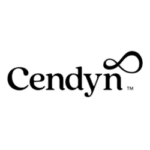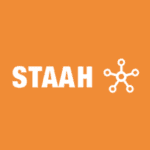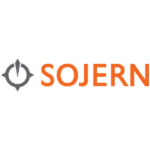 This is an exciting time for hoteliers — the age of data democratization. The technology that collects, manages, and leverages data is quickly improving. At the same time, business owners and employees are gaining a better understanding of what data is and how it can help them.
This is an exciting time for hoteliers — the age of data democratization. The technology that collects, manages, and leverages data is quickly improving. At the same time, business owners and employees are gaining a better understanding of what data is and how it can help them.
In the past, hoteliers were forced to hand over the keys to their data to third parties, which limited their access to their own data and meant fewer choices when it came to which business intelligence and visualization tools they could use. If you haven’t already done so, now is the time to take ownership of your business’s valuable data.
Why the introduction of Google Analytics 4 is a game-changer
In 2020, Google released a new version of its analytics platform. The latest iteration, Google Analytics 4 (GA4), which is being released this coming June, was created to replace Universal Analytics (also referred to as GA3). GA4 brings a wide range of benefits that promise to have a huge impact for marketers, including increased accuracy, predictive technology, and better insights into the customer journey.
One of the biggest changes coming with GA4 is the built-in integration with BigQuery, a cloud data warehouse in the Google ecosystem. Using a data warehouse allows you to unify your data from various sources, such as your website, social media platforms, and SEO all in one place. This makes it easier to create accurate reports and dashboards, as well as build historical records to guide future business decisions.
One reason the BigQuery integration is so effective is that it allows you to avoid data sampling. If you ran a granular report, such as one with filtering and segmentation, on the free version of Universal Analytics and your query exceeded the system limits, it would often return sampled results. Similar limits were imposed when connecting to visualization apps, such as Looker Studio, using the GA3 API. All these limitations severely hampered the platform’s effectiveness, especially for companies with smaller budgets. Sampling still exists in the GA4 application, but users who stream their event data to BigQuery can avoid the query limitations completely.
If you want to learn more about the transition to GA4, check out this GA4 complete guide for hoteliers.
A cost-effective solution for small- and medium-sized hotels
Not only has the technology associated with data management become easier to use, but the cost of these tools is also becoming much less prohibitive. In the past, hoteliers were forced to sign up for expensive, full-service packages provided by third-party analytics services. Even small- and medium-sized hotels needed to follow this model because it was too complicated for them to handle their data management themselves.
As we enter the age of data democratization, these barriers are becoming easier to overcome. Google Analytics itself is completely free to use, providing incredible value for no cost at all. BigQuery, while not free, offers very affordable pricing that scales with your needs. Storage fees are based on how many GB of data you have, so you only pay for what you use. You’ll also need to pay for the queries you run, which occur whenever you request or alter your data. Conveniently, BigQuery offers two pricing options for queries: a flat-rate pricing model (perfect for businesses with fixed budgets) and an on-demand pricing model that scales with use. Combined, GA4 and BigQuery provide a cost-effective solution for hotels of all sizes.
The benefits of owning your own data
While it might be easier than ever to take ownership of the data your business collects, does it really matter? The answer is a resounding yes. By overseeing your data storage, you’ll be free to connect your data to the business intelligence and visualization tools of your choice, rather than being forced to use the ones that a third-party analytics service prefers. That means you can find the programs and applications that fit your specific budget, scale, and focus.
Taking ownership of your data also means that you retain control. You and your employees will be free to grant permissions to outside stakeholders, rather than the other way around. This means you’ll never be “locked out” of your own data. It also ensures a more seamless transition whenever you change partners, and it guarantees that you’ll never lose or forfeit data in the process.















